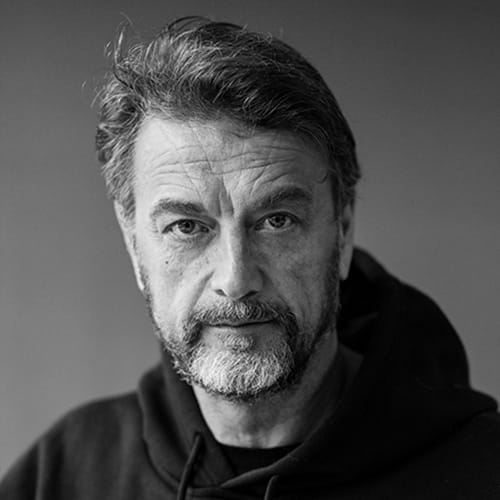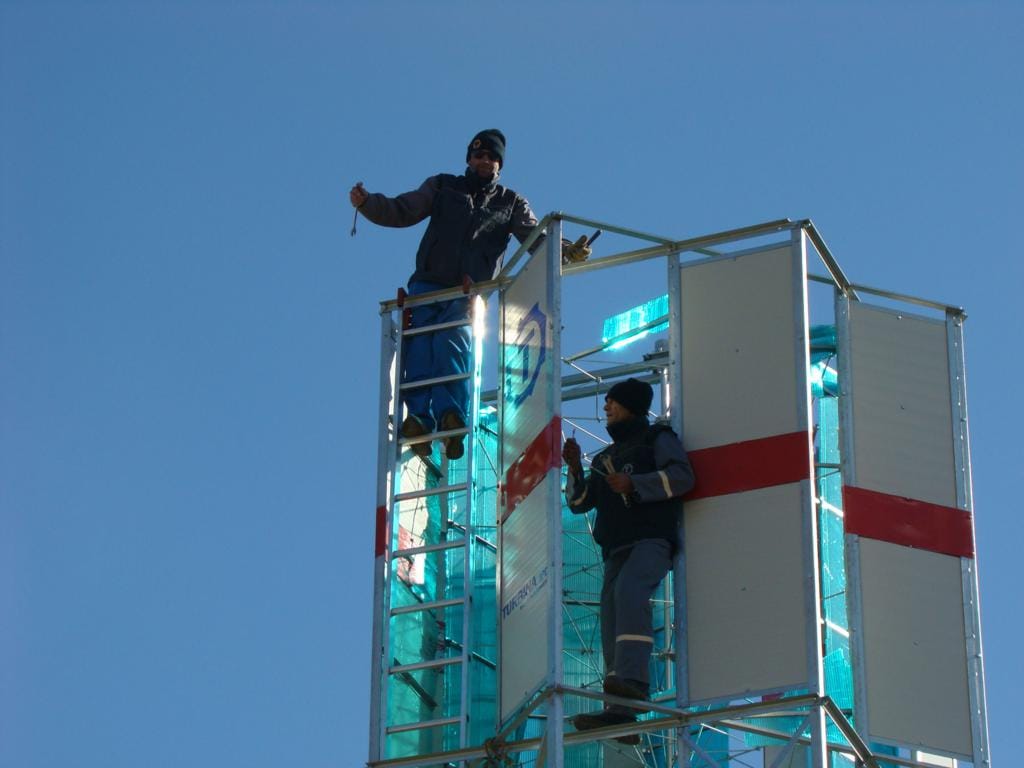In Kotor Varoš, a little town on the fringe of Banja Luka, 28-year-old Miroslav Tešić is one of about 25,000 residents.
Unlike the majority of his contemporaries, this electrical engineering student never wished to move abroad to search for a better or an easier place to live. He wanted to stay and work in the town where he was born.

That used to be the way most people thought. But today, running a business that can support a family in Bosnia and Herzegovina (BiH) can seem an impossible dream. Would-be entrepreneurs compete for inadequate development funds and cope with red tape and high taxes levied by a government that offers little in the way of support for small business. For many it can feel like tilting at windmills.
Tešić, however, turned that metaphor on its head — he produces windmills.
There is hardly any tradition of research or development of wind technology in BiH. But Tešić, along with his brother and father, patented their first windmill in 2002. After three years of exhibiting innovative devices and winning engineering awards, the family attracted the interest of German investors who see potential in the windmills from Kotor Varoš.
In 2004, the Tešićs began a company, Komrel, which now employs five people. Atop windy Vlašić Mountain they constructed a 12.5–meter-high prototype windmill large enough to power a household as a demonstration of their technology to investors.
‘We are now in the phase of producing windmills and exporting them out of Bosnia and Herzegovina to foreign markets’ Tešić said. ‘I think that the biggest opportunity will be the market of the Netherlands.’ That is a country that appreciates wind mills.
He and his partners were not deterred by the long, complicated procedure they had to endure to register their company or the lack of interest here. They were always certain, he said, that they had a good idea that sooner or latter would interest someone.

The Center for Investigative Reporting in Sarajevo (CIN) found that persistence and belief in themselves helped many successful businessmen beat the odds against new enterprises.
Zahida Ćosić, a 50-year-old tailor from Zavidovići, said few friends or family understood her urge to run her own business. She tried to explain that she wanted the security of supplying her own livelihood and the satisfaction of creating jobs in her hometown.
‘My business story begins in 1987 when as a very young person I had opened my first boutique in Zavidovići’ she said. ‘No one thought that I would succeed but I did. After that, in 1989, I opened a factory in which I’ve been selling mostly business uniforms.’ She catered to lab and construction workers.
However, the war wiped out her assets. She saw a chance in 1997 to start over when the municipality of Zavidovići opened an industrial zone and offered firms that relocated there tax relief and aid with zoning and construction permits. ‘Let me tell you right away that when we came there it was just a plain’ she said. ‘There was neither electricity nor water.’ But she also managed to win a 60,000 KM grant for building material from the European Union’s Quick Impact Facility CARE fund.
Since then she’s met with plenty of difficulties, including the loss of a big buyer in 2003. But today her Unicom operation employs 58 people. And they are sewing work uniforms for the German market.
Ćosić said she is proud to have succeeded in a small town, especially as a woman. Creating jobs in her hometown remains her biggest reward.
Another success story is Zlatko Lučić, the owner of Zlatomed Banja Luka. His beekeeping equipment business was unique when he started it 13 years ago.
‘My start-up capital was a wooden stump, a piece of aluminum and a hammer’ said Lučić. ‘Whoever you turned to for help would want a mortgage … because a man with a good idea without a mortgage is a loser in BiH.’
He now employs eight people. He has succeeded in part because he has no competitors and because he was stubborn, he said. It took nine years of his and his family’s free labor before he made any profit.
‘This is like a game of sport’ he said. ‘Someone plays all 90 minutes. Others play only the first half, others still only 10 minutes. Some are sitting on the bench the whole time. And always there is only one who is the best, the most persistent.’







